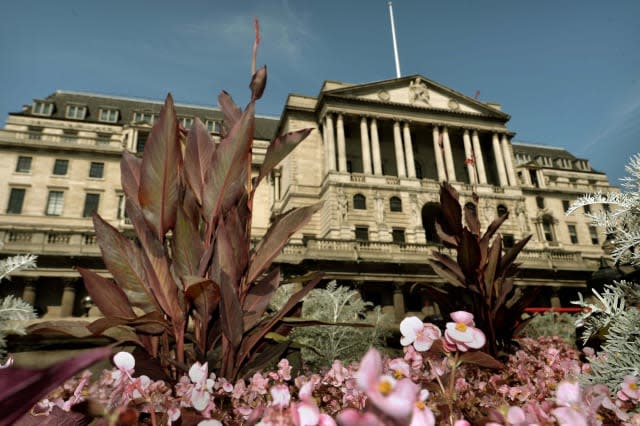Which way will UK interest rates go next?

With interest rates at historic lows, the general consensus has been that the next move for rates would be up, while the question that has been the subject of almost constant debate was simply a case when rates would rise. That was until a few days ago, when Andrew Haldane - a member of the monetary policy committee at the Bank of England, charged with setting our interest rates - publicly stated that the Monetary Policy Committee (MPC) should be prepared to move rates down as well as up.
As you would expect, this departure from the party line caused plenty of uncertainty and prompted the governor, Mark Carney, to respond. When questioned at a panel discussion at a Bundesbank conference in Frankfurt, he said: "We're still in a position where our message is... that the next move in interest rates is going to be up."
Whilst some of the media believe that Mr Carney and his chief economist, Mr Haldane, are now at loggerheads, I believe that the two are not miles apart in their thinking.
The Case For A Rate Cut
There has been much made of inflation falling to zero in the press, along with the spectre of deflation, but perhaps it is worth trying to identify good and bad inflation.
It could be argued that the current deflationary pressures (the price of food and energy falling) are signs of good deflation: the rationale being that us consumers have more money in our pockets to spend at the end of the month. Clearly this is good for the economy and can lead to higher productivity and higher company profits.
That said, we still need to be on the lookout for bad deflation. This is where the prices of our goods and services start falling, prompting people to put off purchases of that new TV or car, as they believe that it will become cheaper in the future. This has the opposite effect on some companies, as they are forced to slash prices and even make people redundant in order to stay profitable. Left unchecked, bad deflation can become a vicious circle, which is hard to escape from.
It would almost certainly mean that Mr Carney would have to cut rates to zero and possibly unleash further quantitative easing. I believe that Mr Haldane was simply making the point that the MPC would need to watch the situation as it plays out very carefully, and reacting promptly.
When Will Rates Rise?
If you listen to the 'guidance' given by the MPC, you will know that the next move for interest rates are "up". The burning question for the population of the UK is when? Unfortunately for us investors, we are left with a plethora of predictions. I remember reports from last year that mooted a rise following the 2015 General Election. With inflation at zero, that is now rather unlikely.
The 'Goldilocks' Effect
No, I haven't taken leave of my senses - let me explain... I expect most of us remember how Goldilocks liked her porridge: not too hot, not too cold, but just right. This is, in effect, why the MPC has a 2% inflation target - we want the economy to be just right. In order to achieve the desired outcome, something must fall or rise within certain margins, as opposed to reaching extremes. In other words, we don't want too much deflation, nor do we want too much inflation, as both can potentially be bad for the economy.
Personally, I think that investing based on the ever-changing macro picture can be a costly game: one should try to look for stocks of good companies trading on reasonable valuations, rather than worry about which way interest rates will go in the short term. Instead of trying to second-guess our policy makers, try to pick companies that allow you to sleep at night.
However, the market can sometimes throw up good buying opportunities as investors sell off good stocks purely because the macro situation may change. Sometimes it can pay to keep watch.
As the market wobbles, overreactions to the perceived macro story can be your friend when looking over the long term and investing in strong defensive companies who provide essential goods and services used by all of us every day. Those services are something that we have come to expect in the UK, and form part of our daily lives.
And on that note, I like to take the opportunity to present this special free report. Within, you'll find five shares that have broad global exposure, dominant market positions, and/or strong brands that should provide steady cash flows that long-term investors look for.
To receive 'The Fool's Five Shares To Retire On' simply click here -- you won't be charged a penny or obligated in any way - Enjoy!
Read more on AOL Money
Low interest rates 'cost savers £130 billion'
You're being ripped off on credit card interest rates




